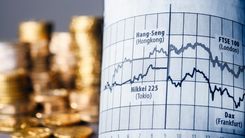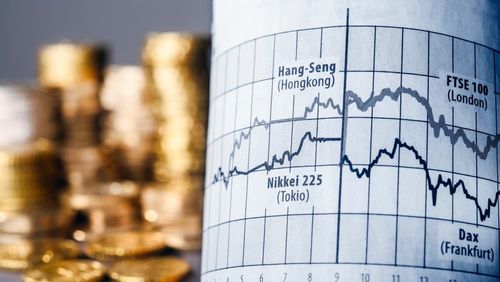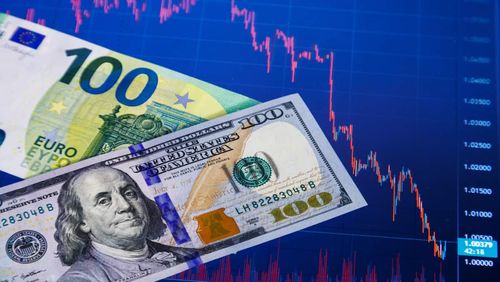Index trading can be daunting for newcomers. Here, we take a look at indices and how to trade them so you can potentially add them to your portfolio.
How to trade indices
What are indices and what is index trading?
Indices essentially measure the price performance of a collection of stocks. These equities are listed on various exchanges around the world, such as the London Stock Exchange and New York Stock Exchange.
Each index and its constituent stocks are usually operated by an independent company. For example, the FTSE 100 tracks equities listed on the London Stock Exchange.
By tracking a wide range of stocks, an index basically shows the state of a particular market or industry sector or the general performance of a country’s stock market. The price performance of indices’ constituents is usually calculated as a weighted average.
Index trading, therefore, lets you speculate on a broader section of an economy or sector through a single position. At Markets.com, we let you do so through spread betting or by trading index contracts for difference (CFDs).
With this approach, you do not own the underlying asset. Instead, you can speculate on price movements, including if the price rises or if it falls (long vs. short).
What are some of the most popular traded indices?
Index traders have many options available to them. However, some indices are more popular with traders than others. Chances are you may see one or more of the following in an index trader’s portfolio:
- Dow Jones Industrial Average – Also known as the Dow for short, this index tracks 30 American blue chip companies. This of businesses like Coca-Cola, Microsoft, Goldman Sachs, and so on.
- S&P 500 – The S&P 500 is another index tracking US large-cap companies. As the name suggests, 500 businesses make up the S&P500. They are listed from highest to lowest in terms of market capitalisation, i.e., how much the busines is worth. At the time of writing, the S&P500’s top constituents were Microsoft, Apple, Amazon, Tesla, and Alphabet.
- Nasdaq – Another US-focussed index, the Nasdaq reports the market value of the 100 largest non-financial companies in America. It is also known as the Tech 100 but isn’t necessarily focussed on technology firms. Retailers Bed, Bath and Beyond is one non-technology Nasdaq component.
- FTSE 100 – The FTSE 100 tracks the movements of 100 UK blue chip companies. Its constituents are listed on the London Stock Exchange. BT, Rolls-Royce, and Royal Dutch Shell are some of the businesses tracked by the FTSE 100.
- DAX 40 – The DAX 40 follows the 40 largest German companies listed on the Frankfurt Stock Exchange. Originally, the Dax held 30 constituents. It was expanded to 40 in 2021. Companies that make up the DAX include Adidas, Siemens, and Volkswagen.
These examples are fairly regional. Indices can track global trends, specific sectors and countries, or specific assets. For instance, the MSCI World Index tracks large-cap stocks in 23 countries. The Nasdaq Biotechnology Index covers biotech firms. The US Dollar Index looks at the performance of the US dollar. There are lots of options available to potential index traders. Which you choose depends on your individual trading strategy and goals.
What are the benefits of index trading?
Trading indices offers some attractive benefits to potential traders, including:
- Less manipulation – Indices aren’t as responsive to potential market manipulation as other financial assets. That’s because its valuation stems from fluctuations in the price of its constituents.
- Diversification – A diverse portfolio made up of multiple assets helps traders protect their investments while also getting exposure to different markets. With indices, you are able to trade on multiple assets with a single position and asset. This can help you hedge against potential losses incurred by underperforming assets in your portfolio.
- Lower risk – Compared with volatile assets like cryptocurrency, some equities, and commodities, indices offer much lower risk. An index losing 10% or more, for instance, would be a major historical event. The Dow Jones, for example, lost over 30% between February-March at the start of the 2020 COVID-19 pandemic but roared back in April.
- No risk of bankruptcy – If you were to trade individual stocks from index constituent companies, no matter how big, there’s always the risk that the company could become bankrupt. An index isn’t a company, thus that cannot happen.
A quick word on risk. Indices trading is like any other form of trading: it carries substantial risk of capital loss. Its risks may be lower than some other forms of trading, but you can still lose money if the market turns against you.
As we offer indices trading using leveraged products like spread betting and CFDs, you trade on margin. While that means you can open a position with a fraction of the trade’s total value, it means your losses can also be amplified.
Only start trading if you are comfortable taking any potential losses.
What affects indices price movements?
An index’s price can be affected by multiple different factors:
- Economic news – From central bank announcements to seismic global changes, such as the COVID-19 pandemic or the 2008 recession, indexes are sensitive to worldwide and local economic trends and patterns.
- Company financial results – During events like earnings season, indices can move up or down depending on their constituents’ financial results.
- Composition changes – The price of an index can be altered if the index makes any changes to the way it is constructed, such as a different weighting algorithm or adding or removing constituents.
- Commodity prices – Depending on the nature of its constituents or target market, an index may also move in tune with the price of commodities. 15% of the FTSE 100, for example, is made up of commodity-reliant companies such as BP.
How are indices weighted?
Different indices are weighted differently. Weighting affects an index’s composition and subsequently its price performance.
A capitalisation-weighted index, such as the S&P 500, is weighted by the size of its constituents’ market capitalisation or value. The higher the value, the higher the representation in the index, so a high-weighted company’s performance, like Microsoft, will have a higher impact on the index’s overall price action.
A float-adjusted index means one that is weighted by all of the shares of its constituents that are freely available to the public.
There are many different weightings available, so do your research prior to committing any capital to get a good idea of how the index is composed and what this means for its performance.










